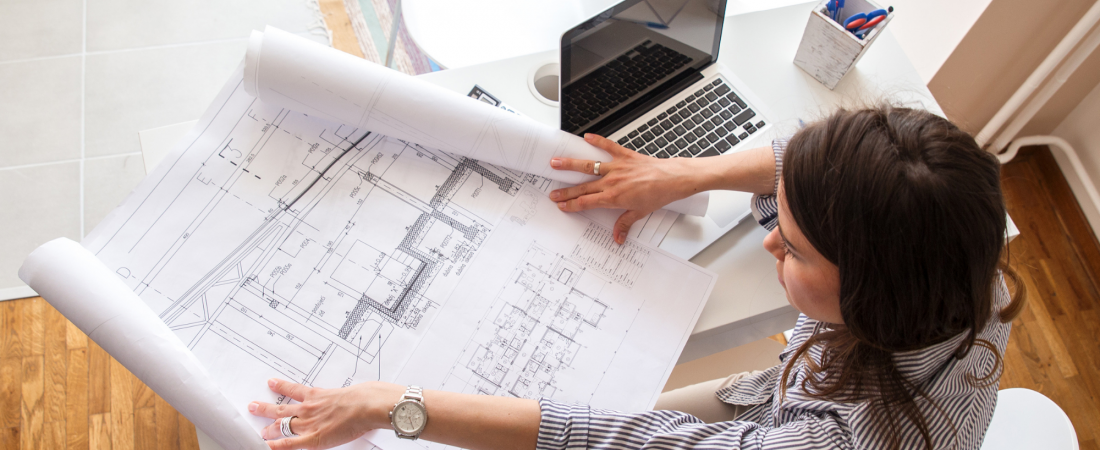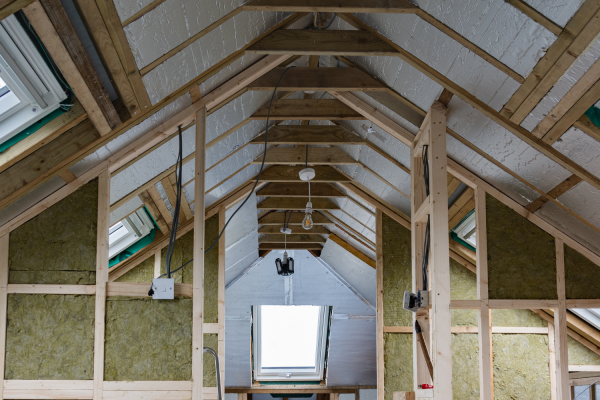For investor landlords, adding value to a rental property is just as important as maximising rental income. While the rent takes care of your positive cash flow, increasing capital provides for a better long-term profit when it comes to selling.
For those wishing to grow their portfolio quickly, having a more valuable property can also help you borrow more, since you have more assets against which to securitise new loans.
The majority of the uplift in your property value will be nothing to do with you. It will be because of land prices, planning changes or the relaxation of lending restrictions. But that doesn’t mean landlords can’t help add on thousands to the value of their properties through sensible, targeted improvements.
In this guide, we will explain five of the top ways to increase your rental property value. Some are cheaper to complete than others, but each has a positive effect, allowing you to command a better price when you decide to sell or remortgage.
Extensions and Layout Changes
With good planning and build quality, an extension can add value to your property. Just how much depends on how the extra space is used. Depending on the area and local demands, a single storey living space extension might not be as appealing as creating an additional bedroom.
Whether extending makes sense depends on the property. A large extension might not add the equivalent value for a terraced home at the lower end of the rental market. But in a desirable area, sought after by families, it could be a wise investment.
It’s vital to hire a good architect, who will ensure your extension works with the ‘flow’ of the property and fits in with its style. Architects ensure planners approve your plans, get the most from your budget and recommend work that will appeal to future buyers, thereby adding the most potential value.
While extensions generally will add value, often a change in layout can do the same job at much less cost. For example, a loft space can be converted to provide an extra bedroom without having to apply for permission for an extension. A built-in or attached garage can become an extra downstairs living room, giving your property the additional living space needed for it to become a large HMO.
Often properties might be held back by having too many rooms, making them seem fussy and claustrophobic. Many owners knock through the living and dining room into one, making a single, spacious living area. Upstairs, where you might have a separate lavatory, bathroom and airing cupboard, you could configure one large, functional family bathroom space instead.
And if your main bedroom is large enough or has an attached dressing room/box room, you could think about carving out space for an en-suite.
Kitchen and Bathroom Upgrades
For renters and buyers, the kitchen and bathroom are key to their perception of the property. Because of their intensive daily use, kitchens and bathrooms can be real pain points for occupants; they need to be large and functional enough and benefit from a quality finish.
If your current kitchen is a good layout you might consider refurbishing the kitchen units and upgrading any built-in oven or hob. A good hob can make potential buyers disproportionately excited, simply because they will be using it every day.
But if your kitchen and bathroom space is awkward, future buyers will pick up on this immediately. Reconfiguring the layout, with a modern fitted kitchen or bathroom suite, can add value to your home. A separate shower, if space allows, is a good idea, too.
It would help if you were realistic about how much value these upgrades will bring. For example, at the lower end of the market, spending too much on a high-end kitchen doesn’t make sense, since you won’t get a return for your money. Instead, go for an economic refurbish which looks great and works well but won’t cost you the earth.
Décor and Finish
Decoration is more transient than the other ideas on this list. It’s contribution to the property value is therefore often in the impression it gives potential buyers as they view the house. But having a house with nothing immediately wrong with it can help with the property valuation.
A good landlord will maintain the property well and keep the décor in decent condition. While helping when it comes to finding new tenants, it will also make the property more saleable. Décor should be of decent quality, preferably in neutral colours. While you may love purple walls, most renters and buyers will not.
Check all the fittings are perfect, such as sockets, light fittings, door and window furniture and locks, gutters, downpipes, roof tiles, and flashing around the chimney. Not having to think about these fiddly jobs when they move in is a premium some buyers will be willing to pay.
Keeping on top of the property while renting it out prevents a creep of disrepair that can cost you in the short and long term. Current tenants might not feel so house proud and be less inclined to look after the home, while potential buyers will see pound signs tumbling off the asking price.
Garden and Outdoor Space
Don’t overlook the green and outdoor space around your property. Ensure the front and rear gardens are well landscaped and tended for – hire a regular gardener, if necessary. Does the outside space lend itself to a BBQ or play area? Play to the property’s strengths, and you can improve aesthetics while adding value to your home.
There’s a lot to be said for kerb appeal when you come to sell, so a well-stocked and tidy front garden will reap the rewards. Some experts say a landscaped and well-tended rear garden can add as much as 10% to the value. At the very least, it will help the property sell faster.
Fix the Biggest Limiting Factor
When you have your property valued, there may be one factor which, above all others, is holding the price down. It could be a structural issue, such as damp. Or it could be that all the other houses on the street have converted their old cellars into useable space. Whatever it is, find out from the agent or surveyor and see if it would be cost effective to fix it.
If turning that cellar into a modern store room would cost £2,000 but add £5,000 to your property value, then it makes sense to go for it. But if making an improvement would cost more than the value it added, then, for investment properties which you don’t live in, it’s simply not worth your money.
Other Value-adding Measures
Other measures you can take will depend on the size and style of the property, together with what sort of area it is in. Here are some ideas:
- Install a high-end security system, with cameras, security lighting, plus extra-strong locks on doors and windows.
- Futureproof the property by making it smarter. Install smart tech to control heating and lighting, add USB points.
- Be energy efficient with low-flow toilets, a modern boiler and good insulation, all things that will help give a good Energy Performance Certificate.
- Consider solar panels to reduce energy bills and provide cleaner energy for the home.
Increasing Value for Long-term Gain
All the measures we outline in this article will help in adding value to your home. Some cost more but can bring higher rewards. Just how much it’s worth you spending on improvements is a judgment call that depends on the style of property and the area.
It is important to remember that the main factor determining the value of your home is the value of the land it is built on — and there’s very little you can do to influence that
As a landlord, you will be used to assessing values of similar properties nearby. In many localities, there will be a ceiling price for certain types of property. With that in mind, it may make no sense to build extensions or expensive re-fits, expenses that you will never be able to recoup when you come to sell.
Often, the more economical choice of remodelling, such as knocking through the downstairs reception rooms, refurbishing and keeping the outside smart is all that’s needed.




Start the discussion at community.openrent.co.uk